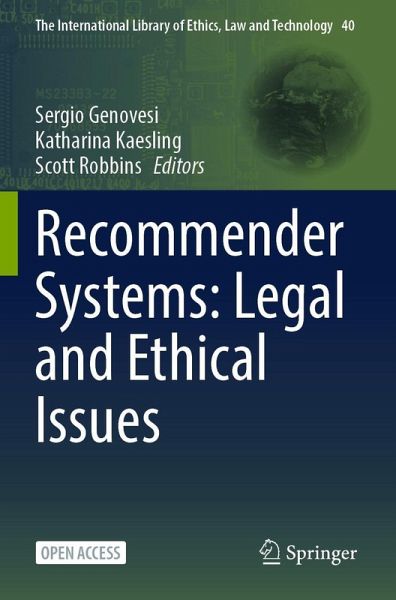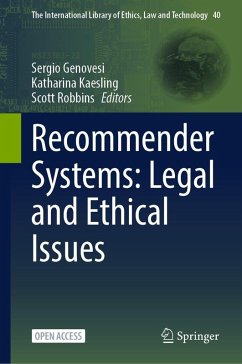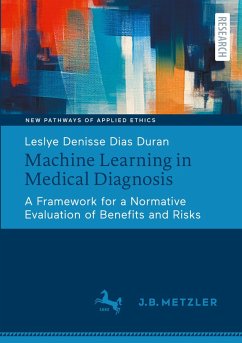
Recommender Systems: Legal and Ethical Issues
Versandkostenfrei!
Versandfertig in 6-10 Tagen
31,99 €
inkl. MwSt.

PAYBACK Punkte
16 °P sammeln!
This open access contributed volume examines the ethical and legal foundations of (future) policies on recommender systems and offers a transdisciplinary approach to tackle important issues related to their development, use and integration into online eco-systems. This volume scrutinizes the values driving automated recommendations - what is important for an individual receiving the recommendation, the company on which that platform was received, and society at large might diverge. The volume addresses concerns about manipulation of individuals and risks for personal autonomy. From a legal per...
This open access contributed volume examines the ethical and legal foundations of (future) policies on recommender systems and offers a transdisciplinary approach to tackle important issues related to their development, use and integration into online eco-systems. This volume scrutinizes the values driving automated recommendations - what is important for an individual receiving the recommendation, the company on which that platform was received, and society at large might diverge. The volume addresses concerns about manipulation of individuals and risks for personal autonomy. From a legal perspective, the volume offers a much-needed evaluation of regulatory needs and lawmakers' answers in various legal disciplines. The focus is on European Union measures of platform regulation, consumer protection and anti-discrimination law. The volume will be of particular interest to the community of legal scholars dealing with platform regulation and algorithmic decision making. By including specific use cases, the volume also exposes pitfalls associated with current models of regulation. Beyond the juxtaposition of purely ethical and legal perspectives, the volume contains truly interdisciplinary work on various aspects of recommender systems.












